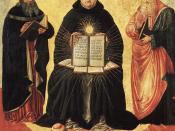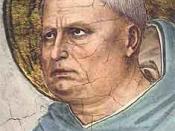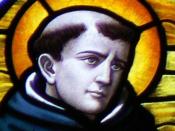Miracles
Identify one philosopher and examine his/her understanding of the term miracle (6 marks)
Examine the arguments, which can be used to discredit belief in miracles. In what respect do you consider belief in miracles to be strong in spite of these criticisms (14 marks)
The topic of miracles and their existence is a controversial one due to the lack of proof of their existence and a recognised definition. Philosophers have long debated miracles, their occurrence and the necessary boundaries that should universally define events worthy of being deemed a miracle. Views upon the subject of miracles are widely varied due to diversity in religious beliefs, both theists and atheists deliberating over their existence. The problem with the assortment of perspectives is that where one group claim that God is responsible for the occurrence of a miracle, another group discard this explanation. Similarly, there is a combination of beliefs on how to define a miracle, as some people would perceive the sun stopping in the sky as a miracle, whereas others claim that the birth of child is 'miraculous'.
One of the most influential theologians involved in the determination of miracles and their existence in the world today, was St. Thomas Aquinas. For centuries, scholars and philosophers have deliberated not only over the existence of miracles, but that if they do exist, over what boundaries to term them within. Aquinas is one of the most recognised philosophers, who came to the conclusion that miracles, in their entirety, could be defined as "Those things..., which are done by divine power apart from the order generally followed in things."
For Aquinas, due to his belief that God was that of an interventionist, there were three types of miracles that could take place. The first of the three kinds of miracles was...


